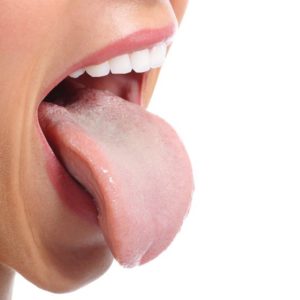5 Causes of a Bad Taste in Mouth
October 12, 2020
 The foods you eat aren’t the only things to leave a bad taste in your mouth. In fact, changes in your taste can indicate an issue, like poor dental hygiene, pregnancy, or dry mouth. Although it’s normal to have an unpleasant aftertaste after eating pungent or sour foods, if it’s a persistent problem, it’s time to see your dentist. There are several factors that can cause a bad taste in the mouth. Your dentist will identify the cause to bring harmony back to your senses.
The foods you eat aren’t the only things to leave a bad taste in your mouth. In fact, changes in your taste can indicate an issue, like poor dental hygiene, pregnancy, or dry mouth. Although it’s normal to have an unpleasant aftertaste after eating pungent or sour foods, if it’s a persistent problem, it’s time to see your dentist. There are several factors that can cause a bad taste in the mouth. Your dentist will identify the cause to bring harmony back to your senses.
Why Do I Have Bad Taste in My Mouth?
A lingering bad taste is called dysgeusia, which is said to be bitter, metallic, foul, or salty. It can be so overwhelming that it can be very distracting when eating or drinking. It can even linger after brushing your teeth.
Often, the source isn’t serious, but you may need to see your dentist for intervention if it doesn’t resolve on its own. They’ll identify the cause to create a personalized treatment plan. Although it can occur for several reasons, the most common causes of a bad taste in the mouth are:
- Dry Mouth: Also called xerostomia, the condition occurs when there isn’t enough saliva in the mouth to keep it moist. This allows bacteria to thrive, which can leave your mouth feeling sticky. Bad breath and a poor taste are common complaints of dry mouth. It’s best to stay hydrated to keep your mouth moist and to prevent harmful bacteria from lingering.
- Dental Issues: Poor oral hygiene can cause a bitter taste, which can worsen if cavities or infections develop. Treating any dental issues and improving your oral hygiene habits can improve the taste.
- Pregnancy: Believe it or not, many women report an unpleasant taste during their first trimester of pregnancy. It’s caused by hormones fluctuations that can make certain foods or smells nauseating. Many women say their mouth tastes metallic or bitter. Thankfully, it usually dissipates later in the pregnancy or after birth.
- Burning Mouth Syndrome: This condition causes a burning sensation in the mouth, which is said to be like eating peppers. Some people develop a rancid taste, too. Symptoms can occur sporadically, which can make it difficult to eat or drink. Ask your dentist about ways to manage your discomfort if it doesn’t subside within a couple of days.
- Menopause: Many women going through menopause have a bitter taste in their mouth, which can be attributed to low estrogen levels. In some cases, they can also experience burning mouth syndrome or dry mouth.
Stop the Foul Taste
If you can’t get a bad taste out of your mouth, it’s time to see your dentist to identify the cause of your discomfort.
About Dr. Daniel Berquist
Dr. Daniel Berquist earned his Doctor of Dental Surgery Degree at Indiana University’s Dental School. He regularly continues his training to provide his patients with modern services. No matter if you need regular care or an emergency dentist, he offers personalized solutions. Contact our office today to schedule an appointment.
No Comments »
No comments yet.
RSS feed for comments on this post.
